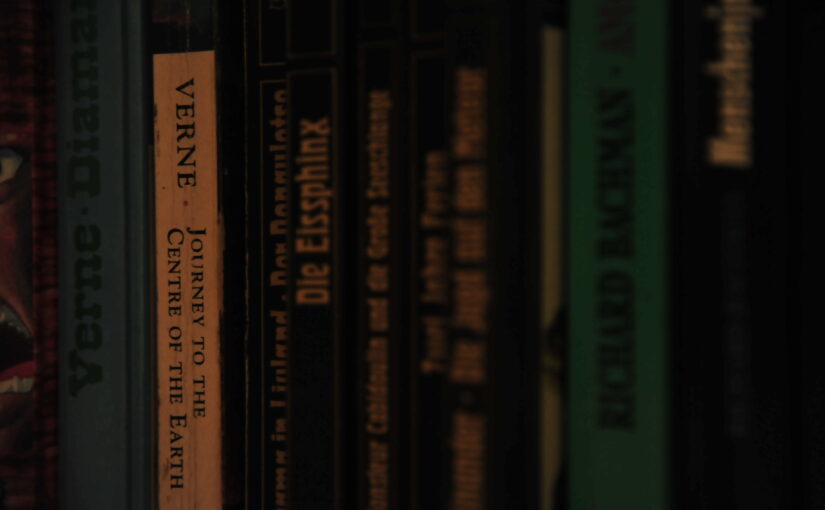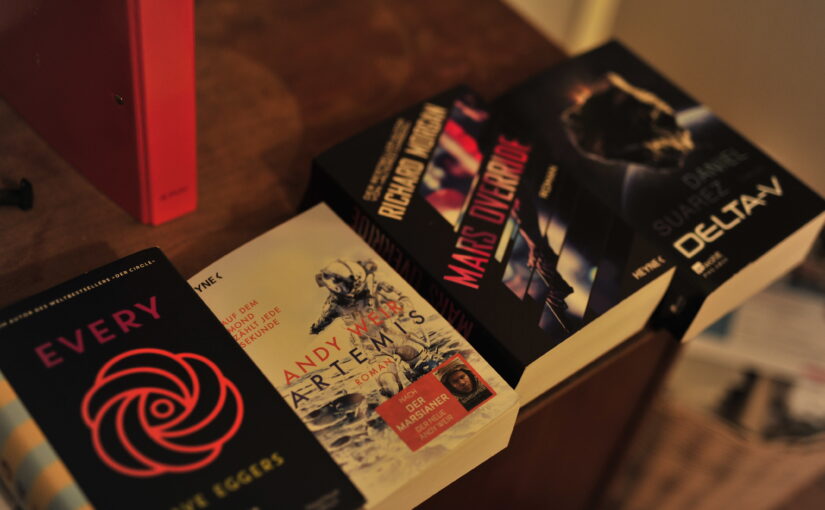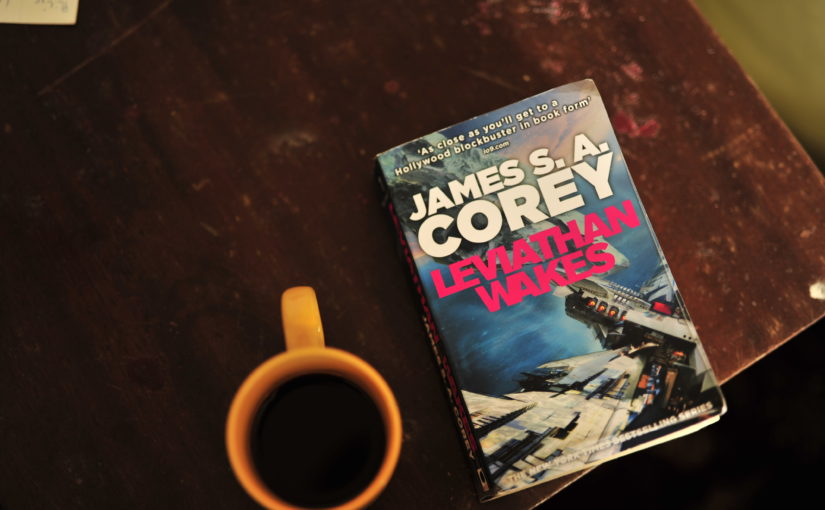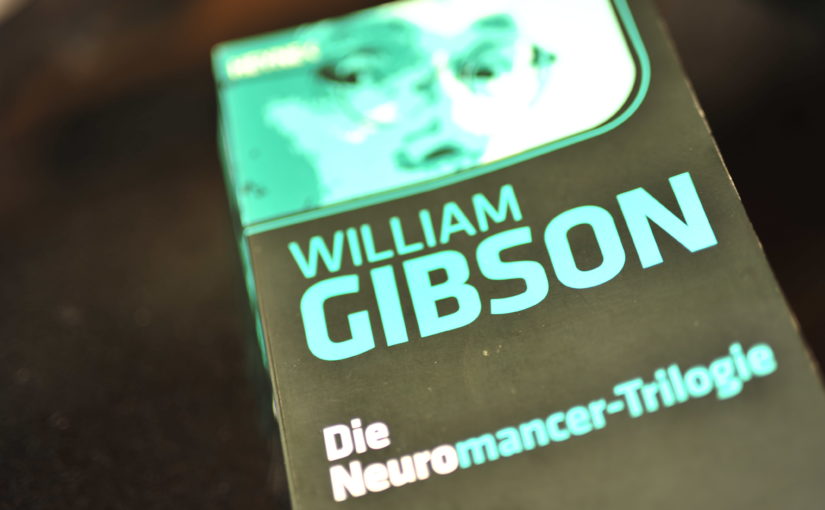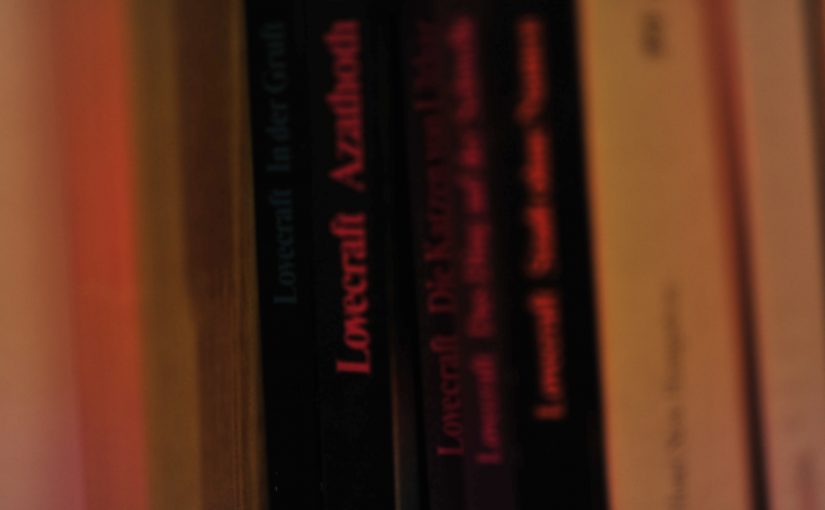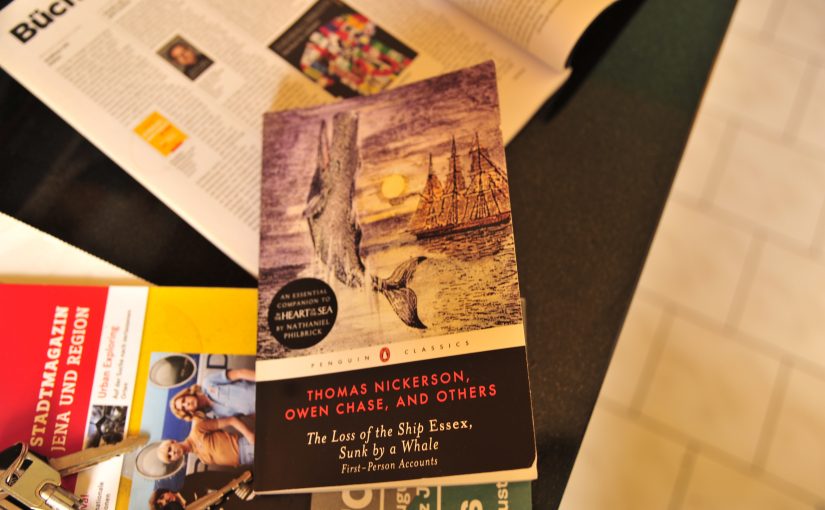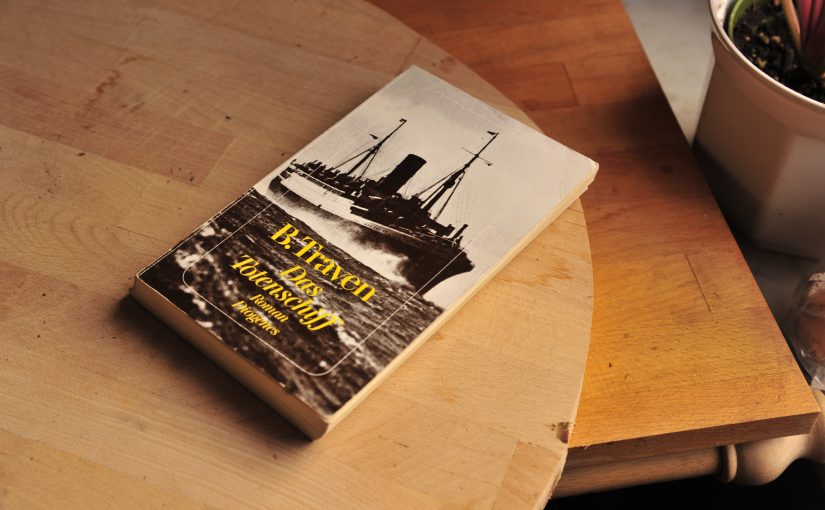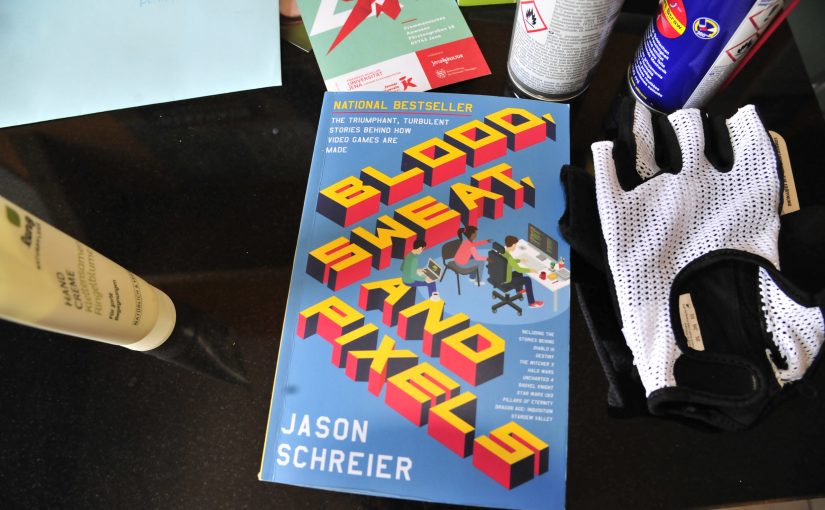I recently read „Journey to the centre of the earth“ and „The ice Sphinx“ by Jules Verne and have to correct the declaration of him being a science-fiction author. He is a very good storyteller, writing adventure books, in the like of Robert L. Stephenson, Daniel Defoe or Dickens. The two mentioned books, as well as his other iconic „80 days“, are stories of adventurers who undertake strenous, never done before journeys during which the most curious things happen and happy endings, all the like. Actually the „Ice Sphinx“ is quite a bold undertaking from Vernes side, as he is writing a sequel to Edgar A. Poes novel „The adventures of Arthus Gordon Pym“, which in my eyes is not that bad.
All this is sprinkled with scientific remarks, so yes, there is a „science“ part here, but it definetly cannot be considered as science-„fiction“ (like e.g. „Frankenstein“ or stuff from H.G. Wells, which try to show the possible outcomes of technological advancements) but rather science-„telling“ in which phenomena are explained with science. But as mentioned, I´d put Verne in the adventure-story part of the bookshelf and considering the very solid, exciting form of storytelling he has, not in the back parts of the shelf.
Schlagwort: english
4x contemporary Sci-Fi / Tech Thriller
4 contemporary books by some of my favorite sci-fi writers who have proven with their earlier works that they can write good, even exceptional books. During the last months I read their latest works, all written in 2017 to 2019 and my thoughts are as follows.
Dave Eggers „Every“
His first work „The circle“ was about a tech-company with a heavy reference to facebook. In this book ‚Every‘ is a company which is a fusion of Facebook, Google and Amazon, shopping, socialising, data control and self-oranzing/-measuring, all in one. The story is about a woman who is set to destroy this company from within, but ends up.. ok, no spoilers from me. The book is written in the same style as „The circle“, but is way too long to be entertaining throughout, it gets boring after a while and the further the story goes, the more uninteresting the not-very-deep-from-the-start characters and scenes become. The ideas he presents are quite fascinating though and one always asks himself if some of these ideas could become reality. So, the writing and characters and what they do are mediocre, but the setting and ideas well done.
Andy Weir „Artemis“
„The Martian“, his first book, had me gripped and wanting to read in one go, which I more or less did (happens seldom). This one here has the same attraction, altough it is different. „The Martian“ was a Robinson-Crusoe-fight-for-survival on Mars with an exceptionally well done scientific and technological approach, entertaining and highly interesting. In „Artemis“ he tunes down the scientific approach a notch and adds some detective-like story elements. A double-edged thing: still an interesting read, but looses the fascination of the hardcore scientific approach and being unable to reach the class of really good thriller or detective-novel writers. Still, a very good, entertainig read.
Richard Morgan „Thin Air“
One of my all-time favourite writers, with his Takeshi Kovaczs „Altered Carbon“ trilogy, this one here is somewhat of a disappointment. It starts very well with the same hard-boiled-sci-fi-special-agent-one-man-army style of story spiked with futuristic technological details but drifts into violent brutality and over-over-constructed story twist the further the story goes and the last third of the book was really hard to read. Sure, i wanted to know how it ended but was kind of bored out with the gory descriptions, two-dimensionalty of the characters and unrealistic scenes. Sorry Richard, this one here is not good.
Daniel Suarez „Delta V“
One of my other favourites, especially „Deamon“, „Kill Decision“ and „Bios“ have been fascinating, somehow terrifying (and terrifyingliny good) Sci-Fi books. And this one here is another one, I´d even say this is his best book so far. The topic is asteroid mining and one might wonder if the story descripted here is already set to become reality or, since in the book the whole operation is kept in secret, is already taking place somewhere in the depths of space. No more words here – this is a must-read for any Sci-Fi, Tech-Thriller fan.
Freudenberg on tour
*** work in progress ***
Took a bike trip around Germany with a small dip into Switzerland, 15 days, 5,000kms … puh, it´s been a wonderful journey. I have something to tell about flow, a sixth sense and my hometown, but all in due time. So here are some pictures first 🙂

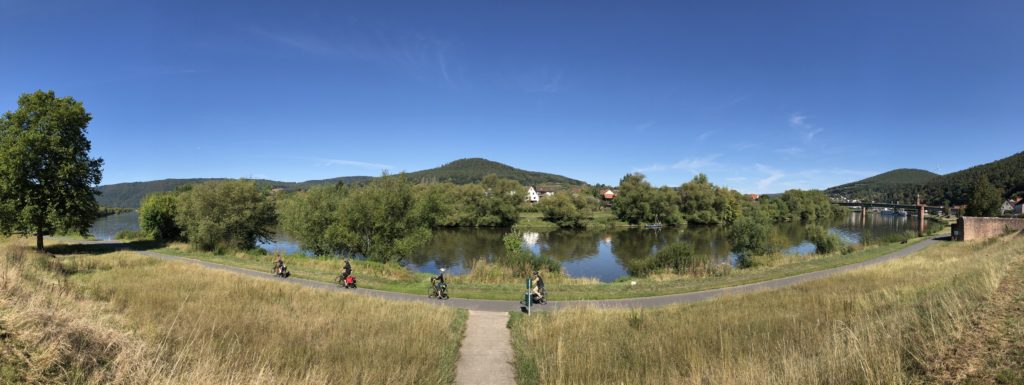

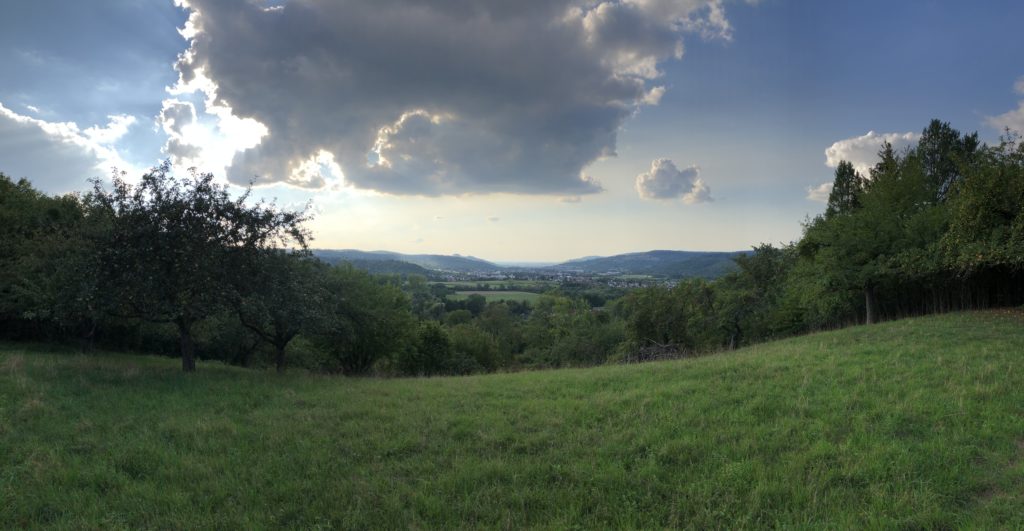
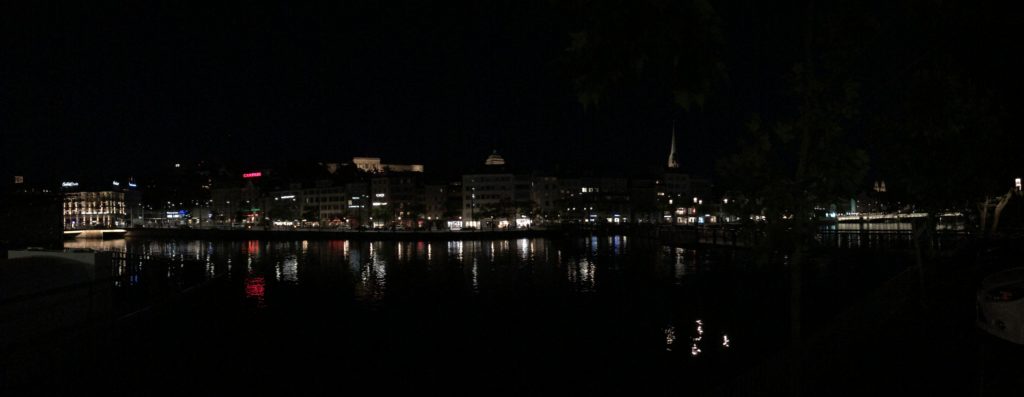
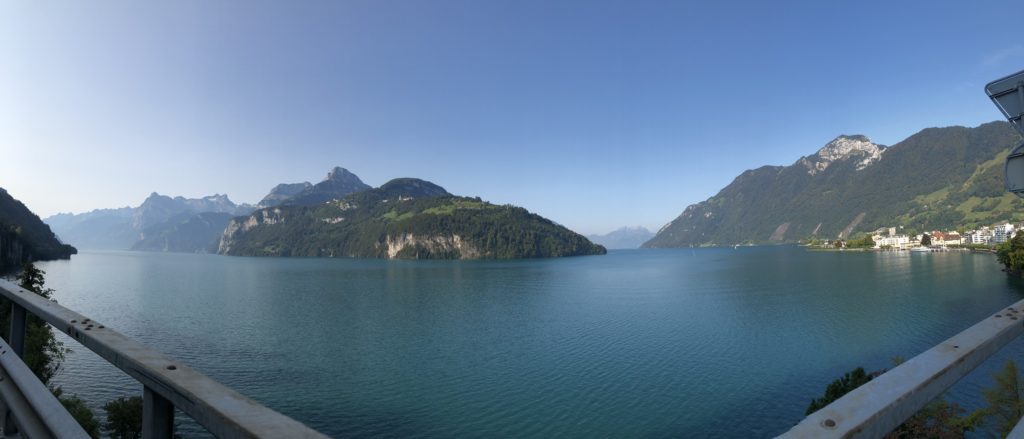




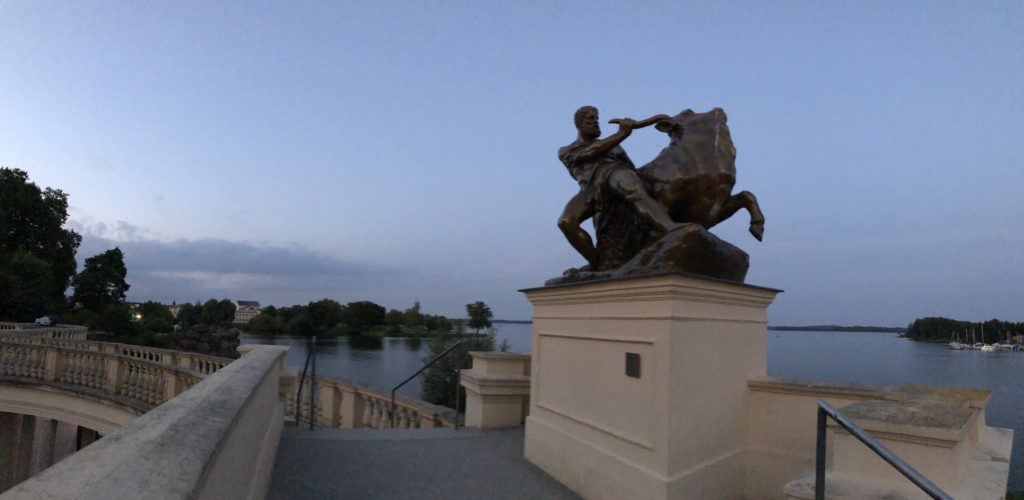

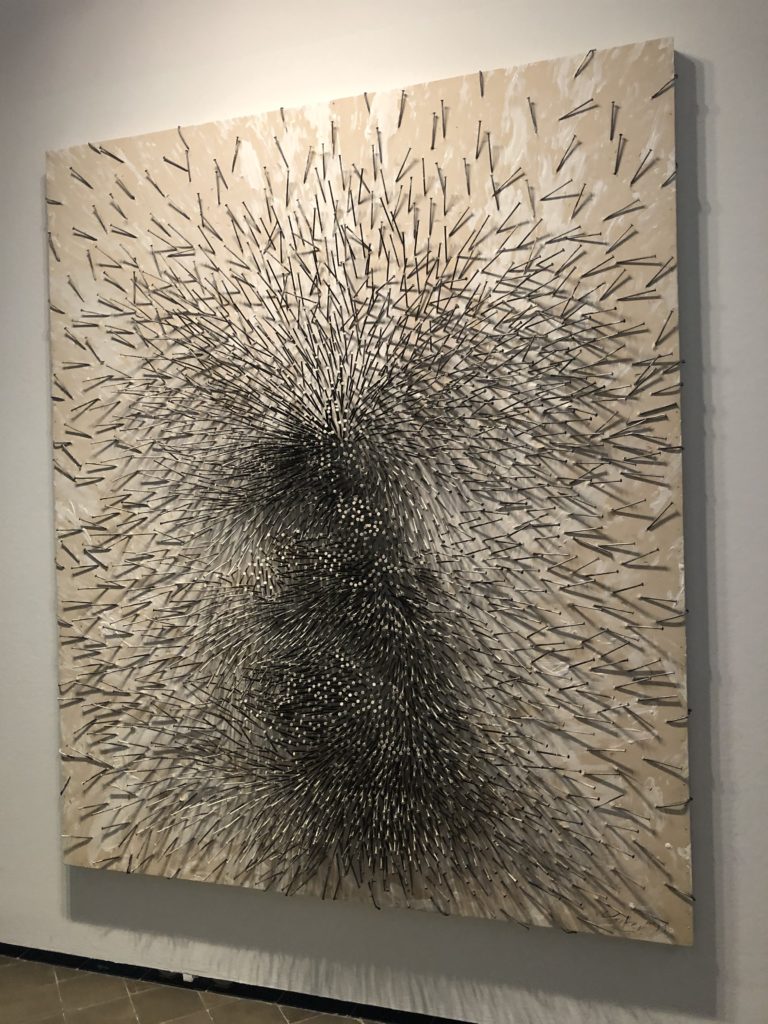



James S.A. Corey – Leviathan Wakes
Good, robust, action-rich SciFi, but a bit over the top in my opinion.
The scenario is set way into the future where the solar system is colonized and three power blocks, Earth, Mars and The Belt, dominate the goings. The story centers on two main characters, Holden, a space-hauler captain and Miller, an aging detective who is more or less a stereotype anti-hero cop-detective like Deckard from Blade Runner or Philip Marlow, Raymond Chandlers main protagonist. These two get pulled into something big and we follow their inner workings and interactions. Sometimes they appear a bit to superhuman but it´s all in agreeable boundaries. The side characters are also developed quite well, you pretty much get a firm grip with whom you´re dealing with. The same can be said about the worldbuilding, the authors make you feel accustomed with the scenario they set their story in focusing more on interactions between the power blocks and the background stories of the protagonists instead of for example technology like in ‚Neuromancer‘.
The story is a mixed bag, starting slow but picking up more and more pace throughout the book, keeps you reading and wanting to know what happens next. But it is way too fantastic, sometimes absurd, piling on even more superlatives the later the book. The book is the first in a series and maybe I will read the second book, but I have other stuff on my bucket list and this one here gripped my attention, thats for sure but not in a breathtaking way. If you´re into fast-paced sci-fi adventure stories with pinches of a detective story and big-time power shenangians – this is solid entertainment.
William Gibson – Neuromancer
Time for an old Sci-Fi classic.
With this book William Gibson defined the subgenre ‚Cyberpunk‘ in the world of Science Fiction. Literature in this genre plays with technological advances in mostly dystopian universes, depicting how societies and their protagonists deal with new technology. In this book Gibson introduces the concept of cyberspace into the world of fiction, quite visonary in the middle of the Eighties.
We follow the story of Case, a hacker, small-time gangster, drug-addict, getting by with criminal activities such as online fraud or stealing data. And one day he gets involved in something bigger and this is what the whole story is about, which I don´t want to spoil, because its a really good one. Actually the story is the main point which makes this an excellent read, it is fast paced, always to the point, contains some turns, without stressing believability and besides the main plot also has a love story woven into. Case meets Molly and they both seem to be made for one another, both develop a crack for each other, but I´m also not gonna tell how it turns out in the end.
Besides his excellent storytelling and character development his world-building is also nothing short of brilliant, the reader at once feels at home, can smell the dirt on the streets, feel the disharmonic society with its technological advancement from which only the few profit.
Neuromancer is the first book in the Sprawl-Trilogy and if I remember correctly the other two stories are also top-notch stuff, I´m thinking about reading them too. But Neuromacer is cleary the most iconic of these. So, if you´re into Science-Fiction, especially into cyberpunk (think of Neal Stephenson, Bruce Sterling, Richard Morgan) the this is an absolute must-read, no discussion. And if you like good storytelling and enjoy reading thrillers then I can also only highly recommend giving this a shot.
Cory Doctorow – Radicalized
Got this one as a Christmas gift from a good friend of mine and its a very good read.
In 4 short stories Cory shows brief glimpses into small aspects of a possible future. The first story deals with internet-of-things, humans dependency on machines and ways to individually solve problems with such machines and the (corporate) mechanisms behind it. The third story deals with radicalization in internet filter bubbles. And the second one is a completely hilarious thing: The world from behind the eyes of Superman, dealing with racism, police violence and control of the mass by elites. I only started the fourth one before something else took my mind, so I can´t say what this one is about.
His writing style is simple, fluent, unnerving. Storytelling is done with some urgency, there´s always something happening, that leaves sidestories and character depth a bit on the shallow side, but thats fine by me.
This is an unspectatcular but very well written mix of novela and sci-fi with interesting ideas. No wrongs in reading these very good stories.
H.P. Lovecraft
In my student days I read some books from H.P. Lovecraft, mystery horror storyteller, creator of the Cthulhu Mythos and as I was browsing through my books to look for something small, unnerving to read I gave „The mountains of madness“ a shot.
If neither Lovecraft nor Cthulhu rings a bell then rest assured that you haven´t missed anything. But he, his writings and also the works of contemporary writers (actually the myth was a product of writers who were inspired by Lovecraft but since he is the centre of gravity around which everything circles it is rightfully attributed to him) have some kind of worldwide fanbase among horror and scifi fans it seems. Why is that? Actually I don´t know, but what is clear is that Lovecraft was the first writer (or at least the first I can think of) who created something like an alternate history of earth, that earth has been visited and colonized millions of years ago by ancient beings from outer space who are more or less godlike creatures. (Ok ok, I can hear you say, what about greek mysticism?, Zeus and all?, what about Jehova?, God?, this is also alternate history in a sense. Yeah thats soemhow right but these religious figures were created for another purpose; best case: to teach people ethics; worst case: for control. Anyways, lets not compare religion with fantasy.) These creatures have been here, founded cities (enourmous ones), colonized the earth and fought wars, against other creatures or struggles happened between different parties, Elder Gods, Old Gods, you know the stories. He also inspired other writers to contribute to these myyths and although they had a very small base of readers, he gained reputation amongst these people. So, creating a new topia in the fantasy genre, inspiring other to contribute, these would be my explanations that Lovecraft and the Cthulhu Mythos still persist today.
Ok, so what about the works in literture terms? Two things first here: I only read „Mountains of madness“ („Mom“ from here on) and would not like to judge on one book alone (but its uncertain that I´ll read another one); and fantasy and horror is definetly not amongst my liked genres, not far off maybe but I´m no expert here.
Storywise, in „Mom“ we have a scientist who leads an expedition to Antarctica where the group of scientists discovers some old mysterious artefacts, later half the camp gets massacred and the protagonist and a colleague discover a huge and very old city where in the end they meet one of the elder beings or better, one of their creatures, a Shoggoth, which were created as workforce. Turns out this Thing was responsible for all the deaths and both the scientists barely manage to escape. Quite the standard story and from what I know this pattern is canonical for Lovecraft: a scientist discoveres traces of the ancient beings and gets mad or killed. Not too shabby for a fantasy story, actually quite good if you ask me.
His style is also interesting because he weaves science into his story, in „Mom“ you can learn about navigation, geology, biology and some other stuff. But concerning creating tension he cleary lacks something but I don´t know what it is. This book is definetly not a horrific experience, I guess a hardcore horor fan will fall asleep after 5 pages. Lovecraft is often compared to E.A. Poe because they share the same genre, but I assume that Poe has a different style because otherwise he wouldn´t be that famous. But again, I haven´t read Poe so this is all assuming.
Anyways. Lovecraft deserves credit for creating a myth which persisted for more than 100 years now and I guess requires creativity, persistence and passion to write your own stories in a different style than the common ones, these which sell and for this he has my respect. And although the books are outdated and raise no hairs, they are not bad either. If you are into dark fantasy mystery and not so much into Tolkien style elven stuff then you can give Lovecraft a shot.
And never forget:
„Ph’nglui mglw’nafh Cthulhu R’lyeh wgah’nagl fhtagn.“
Thomas Nickerson, Owen Chase et al. – The loss of the ship Essex, sunk by a whale
What a title… sounds a bit scientific and indeed this is not a novel but contains first-person accounts assembled by a historican, it´s a historical book, a true story. I was a bit sick the last days and besides work was more or less spending my time in bed and this was on top of the shelf so yeah, why not read something about survival on the sea?
The background is told quickly and basically the title tells half of it. The whale boat Essex is attacked and sinked by a sperm whale in the middle of the Pacific Ocean and the 20-man crew travels 4,000 something miles in the byboats for 3 months till half of them are saved, the rest dies on the way. There are two narratives in the book, one by the first mate Owen Chase and one by the cabin boy, the 17 year old Thomas Nickerson. Chase´ accounts refer extensively about the time after the destruction of the Essex and is at times unbearable to read, how these poor souls have to ration food and water, how they land on an island only to find no fresh water and most cruely how they, to survive the last days, have to resort to cannibalism. It is a testament to how far one can suffer, how deep the survival instinct is rooted in man. Nickersons story is more shallow, focusing more on the time before the sinking, which port they were at, people they met and about whale hunting in general. Interesting somehow but nothing to be hyped about.
If you think now, sperm whales? sinking ship? wasn´t there some other, much more famous book called „Moby Dick“? you are definetly right. Herman Melville was to some (small I guess) extent influenced by Chase´ story, there are even some annotations from Melville in this book and in „Moby Dick“ he refers to the Essex at one point. The Essex disaster happened 30 years before „Moby Dick“ and was a big thing in the whaling community so this makes sense. But of course „Moby Dick“ is a different thing, a great story about revenge, stubborness, death.
Small excursion now. I actually don´t know how I got hold of this book or why I wanted to read it but I assume it had to do with a concert I visited in February, the band called „Ahab“ (who is the captain and main protagonist in „Moby Dick“) was giving a show here in Jena. (by the way, I´m thinking about opening up a new category here called Music where I write some concert reports.) So, „Ahab“ are a doom metal band, pretty sinister, but veeeery slooooww metal with growling, very niché. Their albums are always concept albums meaning they circle around one topic or in this case books, their first album is about said „Moby Dick“ for example. Anyways, I attended metal and hardcore and other concerts but doom was new to me and I was completely blown away. The music itself is not very complex or intriguing but the atmosphere it creates is fu…g intensive, very emotional. So, what was I saying… Ah, yes, I would not recommend listen to music while reading since it distracts too much but in this case, reading this book and listen to „Ahab“ makes perfect sense.
Ok, „Sinking of the Essex“, do I recommend it? Not really. But it´s also not a bad book, you fever with these guys, suffer with them and get to know something about the early 19th century and of course, its a first hand report so pepole actually lived through this sh.t.
B. Traven – The death ship
A gritty, sinister and highly political book.
B. Traven is one of the most mysterious persons in literature, his identity being unknown for a very long time, the wikipedia article reads like a thriller itself, go check it out. Today it is quite clear that he was a german anarchist who had to go into hiding from being prosecuted by the law.
The death ship was written in 1926 and is told from the view of an american sailor who works as a boilerman on cargo ships. At the beginning his ship leaves without him and paperless he starts an odyssey around Europe to end up in Barcelona where his only chance to find work is on a so called death ship, whose purpose is basically to carry freight from ports to ports but it is so run down an unmaintained that sooner or later it will sink and the company can receive insurance payment. That of course means that the people on these ships are expendable or at least not worth more than the ship itself. To show this pervesity of capitalism is basically the main intent of the book and Traven does well to communicate this to the reader. The, at times unbearable, moaning and accusationof, the hardship of the work, the suffering and decaying of the poor souls being thrown into and stuck into this miserable life is dripping from every page.
I think that the circumstances in e.g. sweatshops in Asia can be compared to this and therefore I´d call this book a timeless description of the lives of the bottom capitalitic society. The machine has to roll and these workers are paying the price for our lush lifes.
I highly recommend this book, but its not an entertaining read.
Jason Schreier – Blood, sweat and pixels
Informative, well researched and nicely readable book about the computer gaming industry.
Having been a gamer since my youth in the early ninetees and still (and always will I guess) using gaming as one of my sources for entertainment I am also interested in other aspect in the cosmos of gaming, like psychological effects, the technology behind it or computer games as a form of art (they definetly are an art form in my eyes). To grab this knowledge the internet offers a huge pool of sites dealing with almost all of it. One of these sites is kotaku.com which mostly has the common nerd stuff you´d expect but there was this one author and a series of articles which got my attention and as soon as I found out that Mr Schreier put this together in a book, well… he sold one more.
The book decribes in 10 chapter the creation of 10 games, from idea over producing and finalizing to aftersales. Amongst the games are bestsellers like Diablo III or The Witcher and quite unknown titles like Stardew Valley. The range of the studios goes from sole developer to 400 people corporations like Bioware or CD Project Red. The author got his information from interviews conducted with employees or even managers of the studios and writes some story around them, more or less free from ideology, its the work of a journalist, very nicely done.
After reading the book one thought which I always had in my mind got amplified: Art and money-making with a schedule never go hand in hand, one part has to make compromises. This is why I could not imagine to live from art I create. I know how difficult it is to create something, on some days it flows but sometimes nothing goes, creativity cannot be forced. In game creation the studio sets the timeframe and the budget for the artists, things start with high ideas and in all of the example Schreier writes about something goes wrong in the middle and things are delayed, but milestones have to be met for financial sake and at the end the employees suffer from being overworked because of crunch. Definetly not a fine business it seems. But on the other hand what he also heard from some people working in this industry is that they could not imagine doing something else less stressful. Some of these workers (I don´t know how many, Schreier writes „many“, but I think its difficult to guess) say that although they can forget about having a normal life for months, although they haven´t seen daylight for weeks, although they got mental problems as a result of this unhealthy work-life balance, they love their jobs – hard to grasp at first but I can understand what they mean. The feeling of creating something with your hands or your brain can be so extraordinary that you´d be willing to pay a very high price for it.
So, its definetly a niché book but if you´re interested in things around gaming and want to know how these are produced (maybe you always thought like me that games are developed by a group of nerds locking themselves into their cellars and after 3 months the newest sh.. is published) this is a must read. And actually because it so well written I´d also recommend it to casual readers who want to read something about the art industry.
